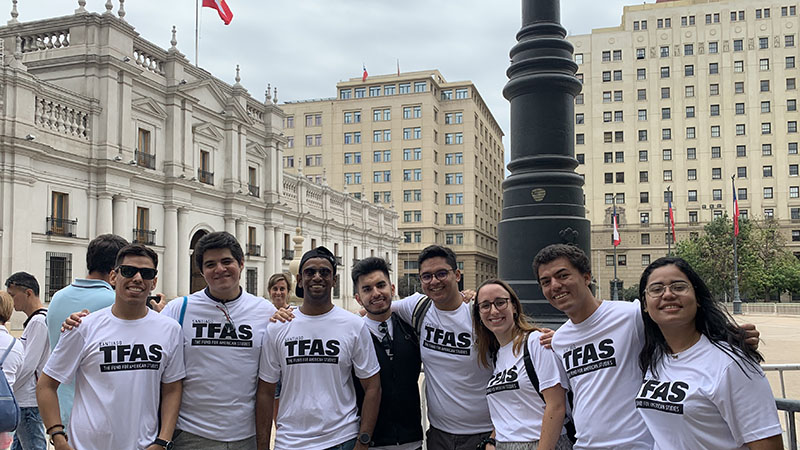
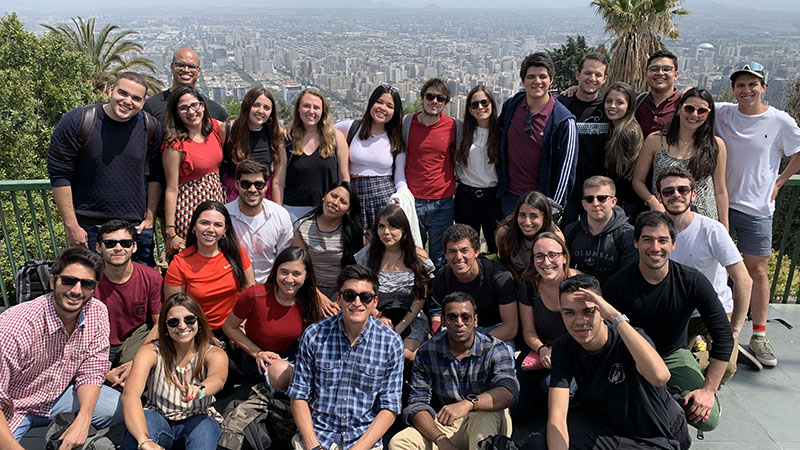
While the Chilean streets rumbled with social unrest and demonstrations, these events did not hinder – but rather fueled – a positive cross-cultural study of the principles and foundations most conducive to human flourishing during the 2020 TFAS Santiago program.
ENGAGE
From Jan. 4-18, 51 young leaders representing 20 countries and diverse backgrounds, political ideologies and world views convened for two weeks in Santiago, Chile.
My experience in Santiago with TFAS and UANDES provided me with an inspiring educational and intercultural experience that I will never forget.” – Francesca McCallister ’18, ’20
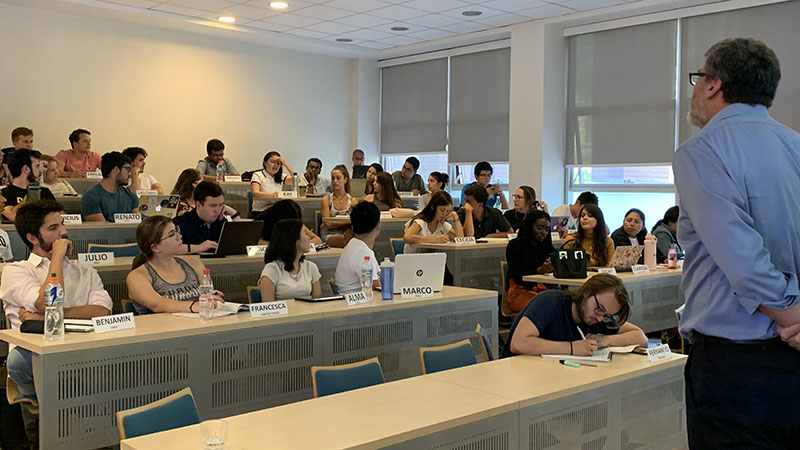
The 12th annual program kicked off with classes led by returning TFAS professor Dr. C. Bradley Thompson, executive director of the Clemson Institute for the Study of Capitalism, who took the students on an intellectual journey to uncover the principles of free societies.
Over the first week of the program, Thompson’s lectures on “Political Philosophy of The American Founding” brought forth ideas on civil societies, individual rights, liberty and the power of ideas while exploring readings from Ayn Rand, Lawrence Reed, David Boaz and more.
TFAS Santiago participant and D.C. Summer Program alumna Francesca McCallister ’18, ’20 called the experience a transformative opportunity to study new ideas and engage with peers from around the world.
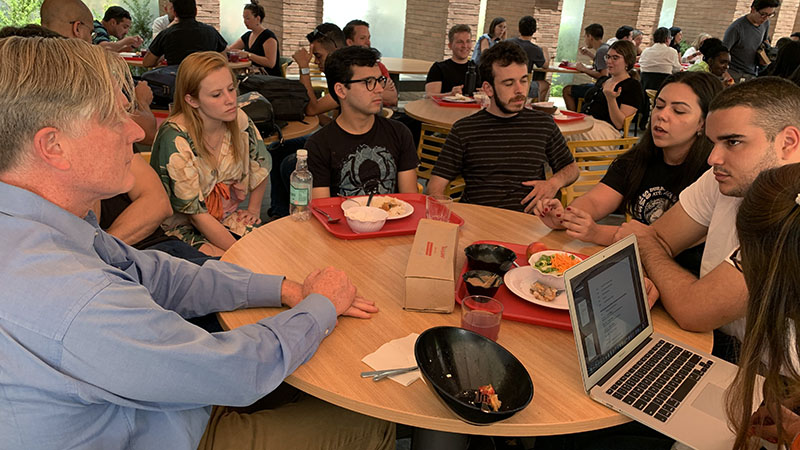
“The open dialogue and discussions facilitated by the thought-provoking lectures set up a platform for free expression of ideas and perspectives,” said McCallister. “I found this to be the most beneficial and exciting part of my experience in Santiago–the interactions and relationships I developed with the variety of international participants challenged me to grow and strengthen my own beliefs.”
Participants were also introduced to ideas from top thought leaders from Universidad de los Andes – TFAS’s academic partner and host in Chile – during the second week of classes. These lectures provided a platform for participants to better understand political, social and economic trends, both in the country and in the Latin American region overall.
These outstanding UANDES faculty and scholar lecturers included:
- University President José Antonio Guzmán
- Vice President José Miguel Simian
- Luis Alejandro Silva, Vice Dean of Research & Post Graduate Studies and School of Law Professor
- Matías Vial, Vice President of University Relations
- Juan Ignacio Brito, School of Communication Dean
- Francisco Ulloa, Vice Dean & School of Business and Economics Professor
- Anil Sadarangani, School of Business and Economics Professor
- Carlos Budnevich, Finance Master Director and School of Business and Economics Professor
- Francisco Tagle, School of Communication Professor
- Cristóbal Benavides, Vice Dean of Communication
- Juan Nagel, School of Business and Economics Professor
- Cecilia Claro, School of Communication Professor
- Maribel Vidal, McCann Erikson Chile Vice President
- Hugo Harvey of the Chile Military Academy and Center of Strategic Studies
EXCHANGE
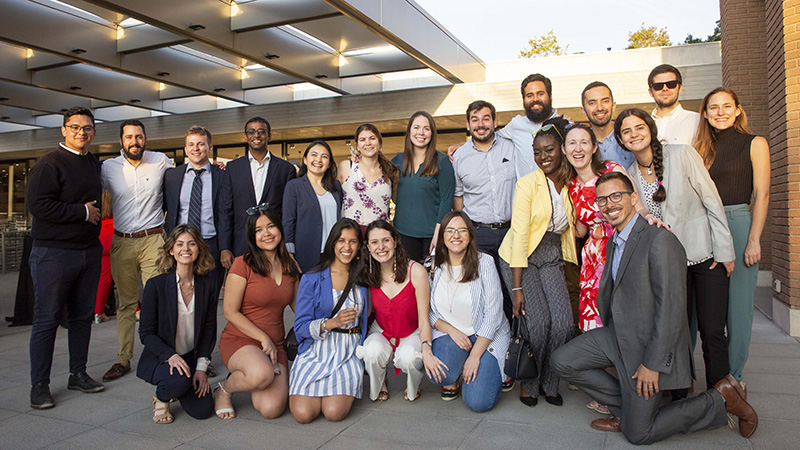
This year’s lectures were supplemented with discussion sessions, created to further explore and grapple with ideas from class curriculum.
TFAS Vice President of Alumni and International Programs Michelle Le ’95, ’96 said this new program component, provided an ideal and encouraging environment for students to continue conversations, and ultimately, build life-long relationships.
“This year’s TFAS Santiago class represented a smart, serious and diverse group of young leaders,” said Le. “This was one of the best years of the program, and I am hopeful and excited for a future filled with free societies left in their hands.”
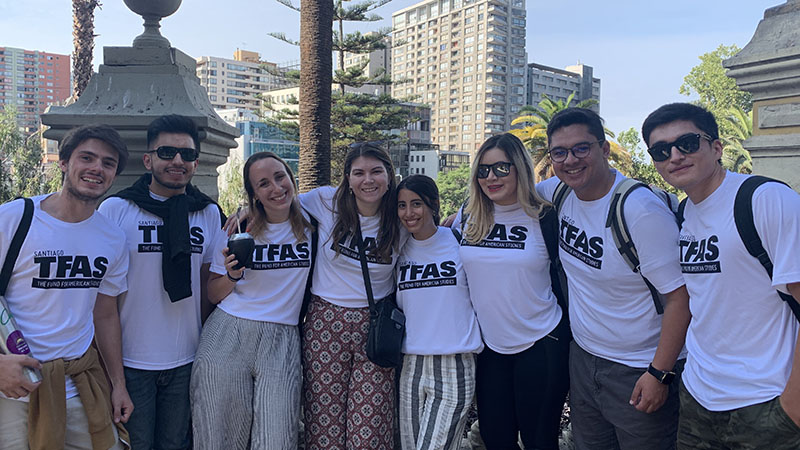
In addition to the discussions, the participants continued learning through private briefings, including a visit to a local think tank dedicated to promoting the values and principles of a free society.
Venezuelan student Michelle Sugey Bernier Zavala ’20 said that participating in this exchange of ideas at TFAS Santiago encouraged and equipped her to continue fighting for liberty in her home country.
“For me this has been an amazing experience and a big opportunity for personal growth,” Bernier said. “I have learned not only about other cultures, but about new ways that I can contribute to freedom in my country.”
Bernier said the two weeks spent with TFAS strengthened her self-confidence and leadership skills.
“The program gave me opportunity to share my opinion and discuss multiple social and political problems with leaders all around the globe,” she said.
EXPLORE
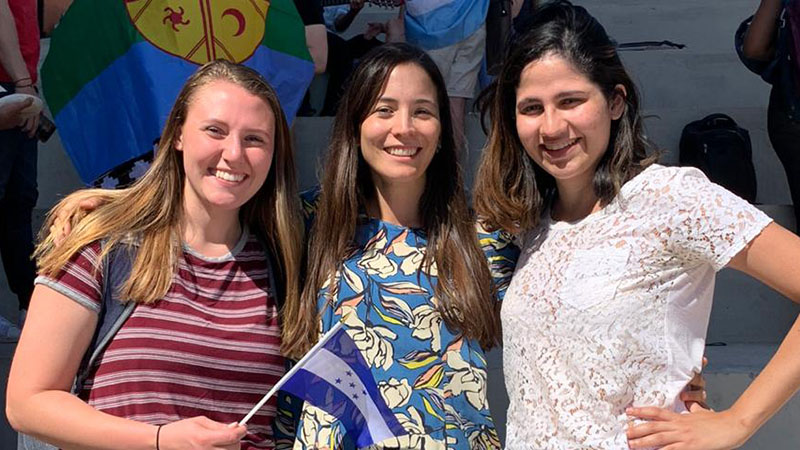
Both in and out of the TFAS classroom, the program was rich with new, diverse cultural experiences. To complement their academic discussions, participants were guided on multiple tours across Santiago and nearby communities. From climbing San Cristobal Hill and taking in the high-top views of Santiago’s skyline, to getting an exclusive peek of La Moneda Palace (the presidential palace) including closed-door tours of the presidential chapel and the presidential coin collection, the class received an all-encompassing, behind-the-scenes view of Chilean culture and history.
Unique to the 2020 program, participants explored two new sites to gain a deeper understanding of Chilean history: the small town of Pomaire, Chile’s ceramic capital, and Isla Negra – the site of one of Chilean poet and Nobel Laureate Pablo Neruda’s homes on the Chilean coast.
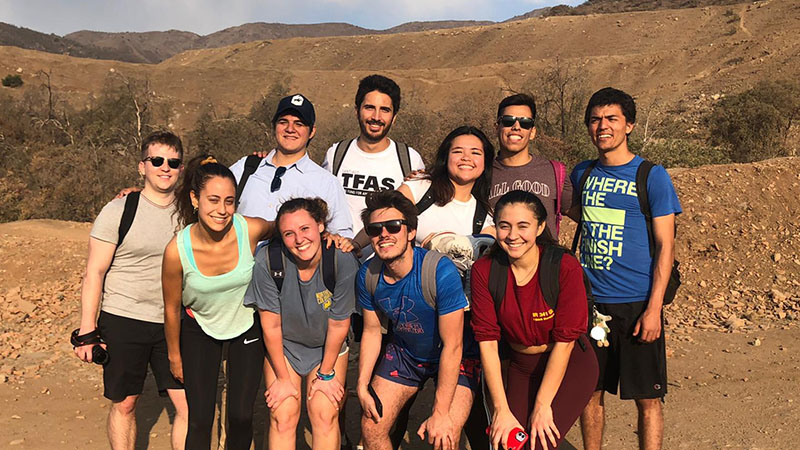
While in Pomaire, the class participated in a workshop to create traditional earthenware bowls to learn about the history and enduring art of clay pottery in Chile.
The students also participated in the annual TFAS Cultural Presentations, a gathering held at each TFAS International program. This event encourages students to celebrate their own cultures and learn about others through performing a dance, delivering a presentation or poem, singing a song, or sharing something iconic about their culture with their fellow participants
McCallister said this cultural exchange provided her with a unique experience and allowed her to quickly connect with peers from different backgrounds.
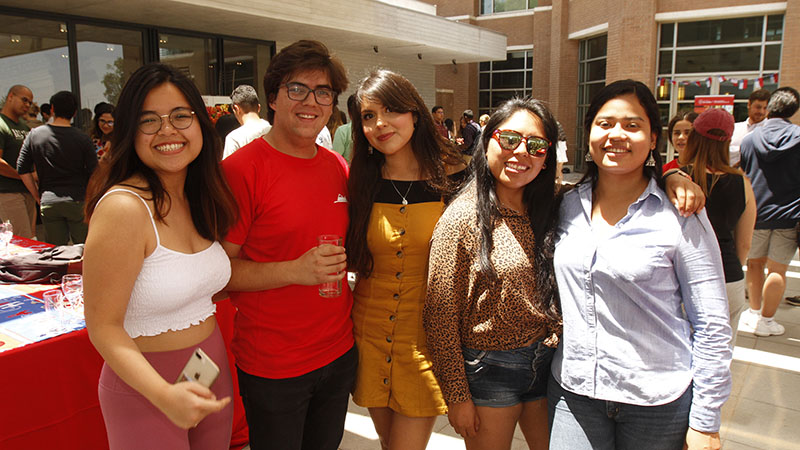
“I found myself inspired by the connections made and conversations had between a highly intellectual and accomplished group of peers from across the world,” she said.
For a final taste of Chilean culture, the group participated in the annual asado (a typical Chilean barbecue lunch) hosted by UANDES and complete with traditional Chilean games, food and practicing the official national dance of Chile: the cueca.
Following a remarkable two weeks of lessons in economics, Latin American history and political philosophy, these 51 young leaders walked away with life-long friendships and a fresh conviction to make the world a better place.

